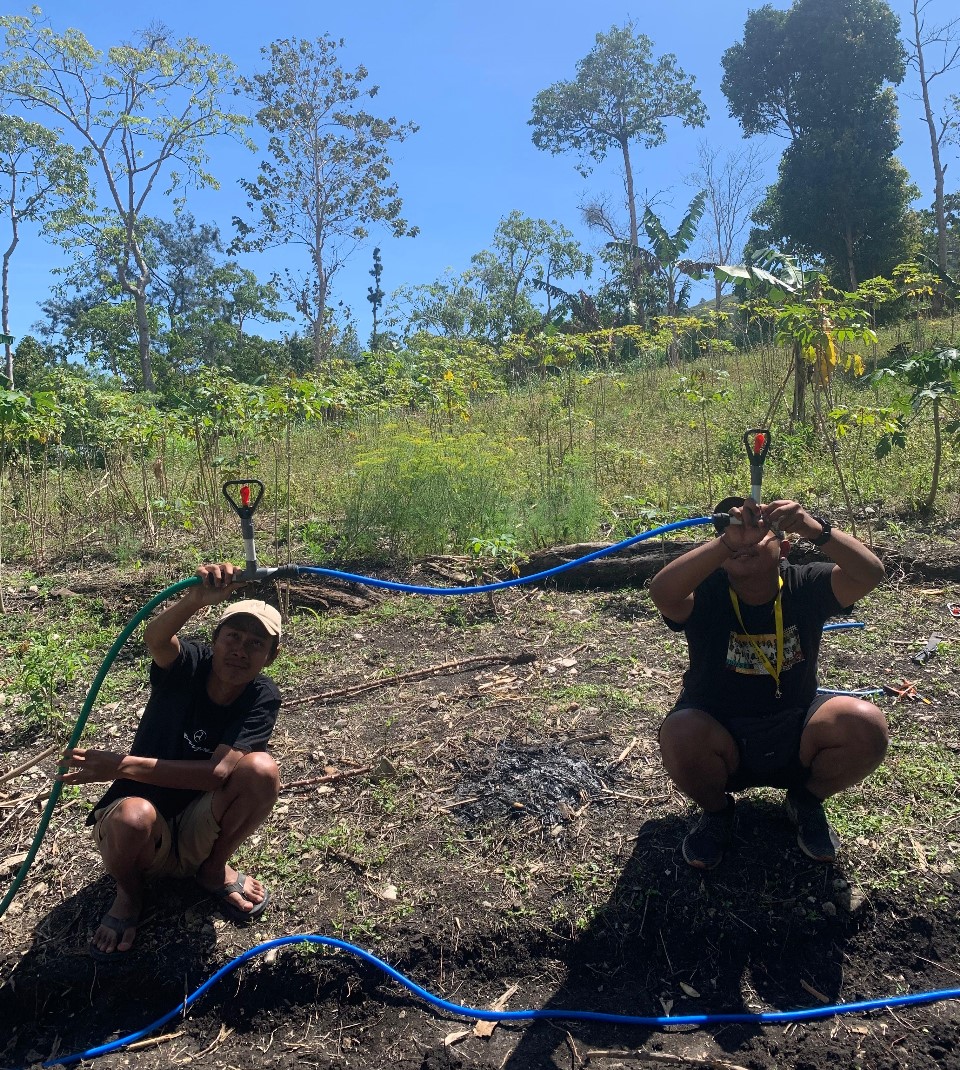
The development of agricultural technology that meets local needs is a crucial step in boosting productivity and improving the welfare of farmers across Indonesia. This is the focus of a community service program (KKN) held in East Nusa Tenggara (NTT) by the UGM KKN team “Sinergi Kolbano” in the second semester of 2024. The program aims to introduce practical agricultural solutions tailored to local conditions. One such initiative was the installation of a sprinkler irrigation system for crop watering in the village of Ofu, Kolbano District, South Central Timor Regency, NTT, led by Hanan Ammar Raihan, an Agronomy student from the 2021 class.
Hanan explained that the idea for the sprinkler installation came from his desire to introduce a new innovation in plant irrigation, as the local community had not fully utilized this technology. While some villagers were aware of the concept of sprinklers, they lacked the knowledge of how to install and apply it correctly. The sprinkler installation training was attended by young people from the village of Ofu and the village’s farmer group.

“I proposed the sprinkler installation because it’s a new innovation in plant irrigation that the people in Ofu have not been able to use optimally. Some people or farmer groups might have heard of it, but they don’t know how to install it and apply it properly,” said Hanan.
The sprinkler system installed by Hanan was designed simply, using 1/2-inch PVC pipes, 1/2-inch hoses, and eight sprinklers, with a diesel engine to pump water from the spring to the farmland. The system was installed on two plots, each 8-10 meters long and about 3 meters wide for irrigation coverage. The installation process was done in stages, including an initial trial to ensure its effectiveness before permanent use. After installation, Hanan conducted an evaluation and made necessary adjustments after discovering some loose connections.
Hanan added that this sprinkler installation directly related to the material he studied in his classes, particularly in crop management. The installation is expected to improve crop production and ease the labour-intensive process of manual watering.
“Before the sprinkler system, the residents had to water manually, and the water source was quite far from the farmland. With the sprinkler system, we hope it will support farming activities and make it easier for the villagers,” Hanan said.
As a student at the Faculty of Agriculture, UGM, Hanan felt it was essential to introduce solutions that could help the local community improve agricultural productivity, especially with limited human resources. The impact of the sprinkler installation has been positive, with the community responding well as the system makes irrigation more effective and labor-saving. Hanan hopes this innovation will serve as an example for other groups and can continue to be applied, benefiting the community in the long term.
Hanan’s KKN program in East Nusa Tenggara demonstrates a commitment to achieving several Sustainable Development Goals (SDGs), particularly SDG 1: No Poverty, SDG 2: Zero Hunger, SDG 8: Decent Work and Economic Growth, SDG 15: Life on Land, and SDG 17: Partnerships for the Goals.
Reporter: Alkhansa Khairunnisa
and Hanita Athasari Zain
Editor: Desi Utami
Photo: Documentation from Hanan and team
